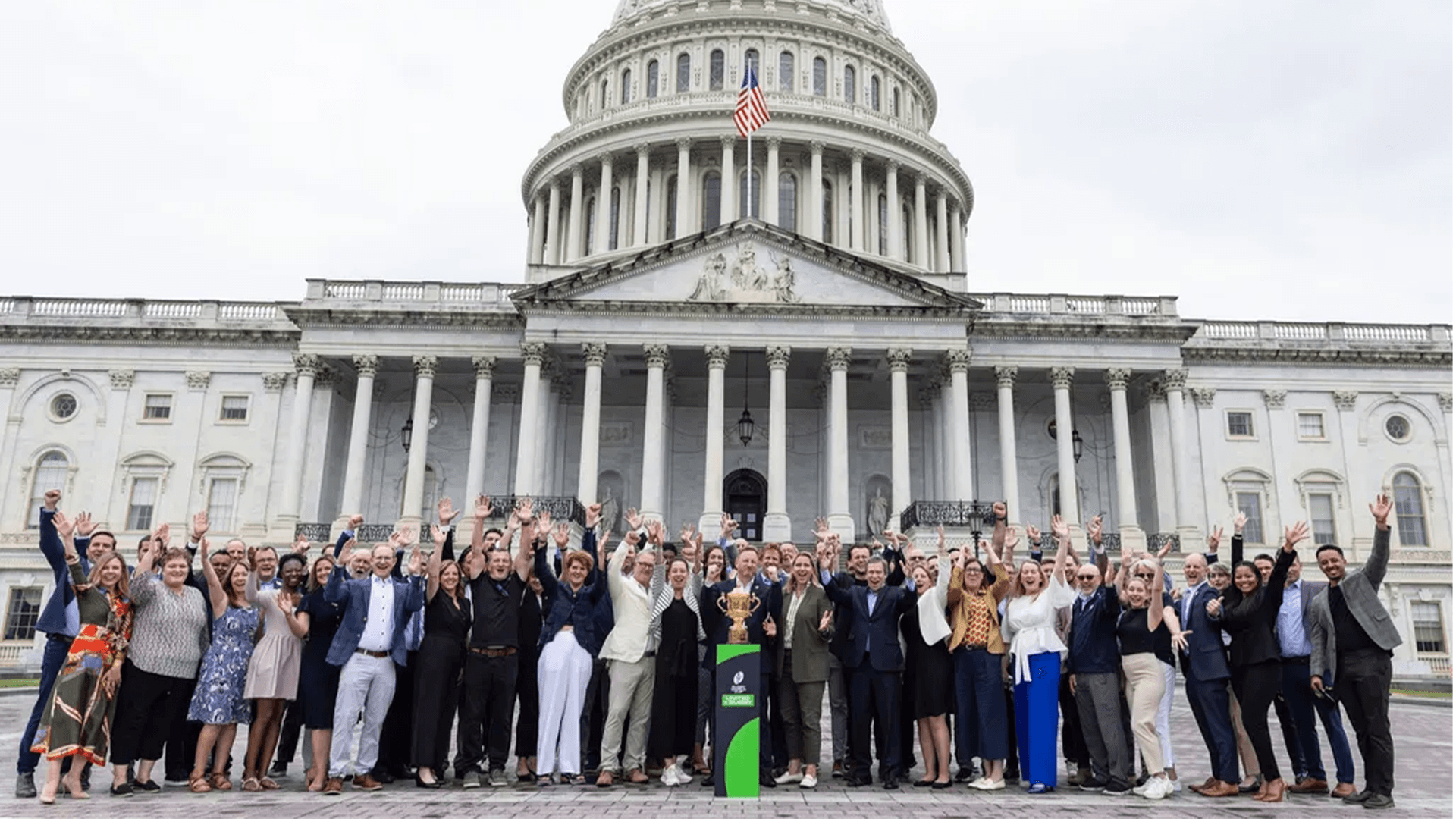
World Rugby has confirmed that 27 cities and areas have formally entered the Applicant Phase of the Men’s Rugby World Cup 2031 Host Selection Process, marking a major milestone on the journey to the first-ever Rugby World Cup hosted in the U.S.
The announcement was made at the United by Rugby Summit in Chicago, on the eve of the sold-out Ireland v New Zealand test match at Soldier Field, celebrating the continued rise of rugby in the U.S. and the sport’s growing global reach.
Following the conclusion of the initial Expression of Interest stage, 27 cities/areas (featuring 33 venues) have now submitted signed Letters of Intent to continue in the selection process. The applicants are:
Arizona, Atlanta, Baltimore, Birmingham, Boston, Charlotte, Chicago, Cincinnati, Denver, Houston, Kansas City, Los Angeles Region, Miami, Minneapolis, Nashville, New Orleans, New York/New Jersey, Orlando, Philadelphia, Pittsburgh, Salt Lake City, San Diego, San Francisco Bay Area, Seattle, St. Louis, Vancouver, and Washington DC.
“Seattle is thrilled to be part of the effort to bring the 2031 Rugby World Cup to Puget Sound and Washington state. Hosting an event of this scale would not only introduce thousands of new fans to the sport but also generate significant economic impact for our region. The Rugby World Cup represents a unique opportunity to grow the game and leave a legacy while showcasing Seattle’s passion, hospitality, and world-class venues on the global stage,” shared Seattle Sports Commission Presidennt & CEO Beth Knox.
World Rugby Chief Executive Alan Gilpin said: “The enthusiastic response from across the U.S. has been extraordinary. These cities represent not only iconic sports destinations but also new, emerging, and existing rugby communities. Their commitment underscores the opportunity Men’s Rugby World Cup 2031 presents to cement the U.S.’s status as a major player in global rugby, but also to inspire and unite new fans, audiences, and commercial partners for the sport more broadly to deliver lasting impact.”
The Applicant Phase is not only a key milestone on the journey to delivering a successful, economically strong Rugby World Cup, but also a cornerstone of World Rugby’s U.S. Growth Plan, which aims to strategically position major rugby content and events in partnership with national unions to develop addressable audiences in key rugby hubs.
Several cities engaged in the Host Selection Process are already central to these growth efforts - markets where the sport is seeing rapid fan engagement, grassroots participation, and commercial potential. Through this collaborative approach, World Rugby is building toward a sustainable rugby ecosystem in the U.S. that extends well beyond Rugby World Cup 2031 and the women’s edition in 2033, inspiring new generations of players and supporters.
Cities were in attendance at the recent Women’s Rugby World Cup 2025 Finals Day in London, which attracted a world record 81,500 fans, to see how World Rugby delivers iconic events under its new hosting model.
Over the next 14 months, World Rugby and USA Rugby will assess, evaluate, and collaborate with all applicant cities and venues through a detailed engagement process. This includes:
Team Base feasibility visits, which are already underway
In-depth venue evaluations, beginning in November 2025
Sharing of detailed hosting requirements, opportunities, and legacy potential
At the end of 2026, a reduced number of cities and venues will move into the Candidate Phase, marking the start of formal contracting.
It is World Rugby’s intention to announce the final selection of Host Cities and venues following the completion of Rugby World Cup 2027, an important milestone in observing best practice, with the tournament draw and match allocation scheduled for late 2029 or early 2030.
Gilpin added: “This is an exciting and collaborative journey. Rugby World Cup 2031 will be more than a tournament. it will be a nationwide celebration of sport, community, and culture, reflecting the diversity and dynamism of the United States.”
Rugby World Cup 2031 represents a transformational moment for rugby in the United States, an opportunity to bring the world’s third-largest sporting event to new audiences and establish a legacy of participation, connection, and growth that will benefit the game for decades to come.
For inquiries, contact:
Griffin Idelman, griffin@seattlesports.org
(630) 487-1647